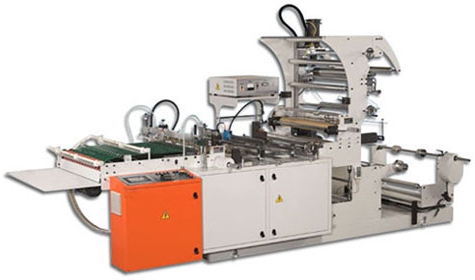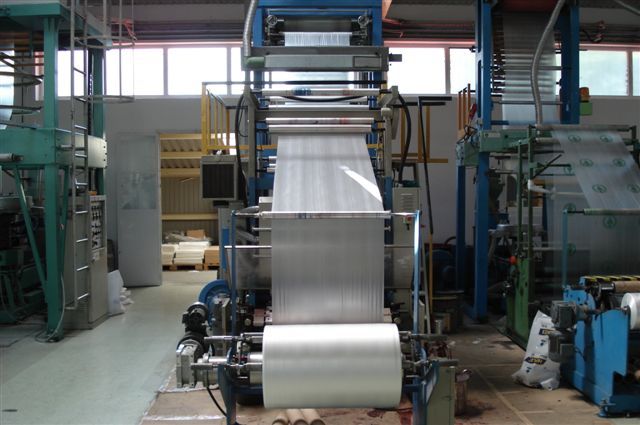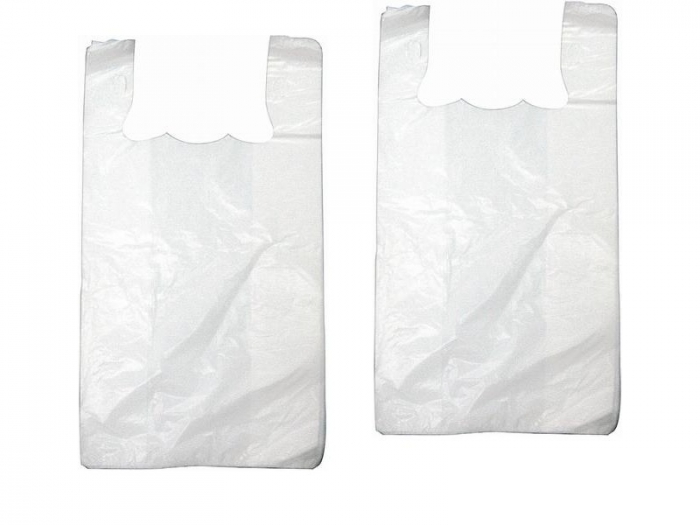Business plan for the production of plastic bags. Technology and equipment for the production of bags
Any type of activity requires the development of a special project on the basis of which it will be built. In today's article we propose to study a business plan for the production of plastic bags. Products made of polyethylene have long been firmly established in our lives. Let us consider in detail how and what you should pay attention to when drawing up a project for this type of activity.
general information
Today, polyethylene products are used everywhere: in stores, supermarkets, for gift wrapping and food storage. There are even special garbage bags that have become common practice for almost all housewives. Long gone are the days when rag bags were in use, and plastic bags were carefully folded and stored.
Currently, a plastic bag fulfills its immediate purpose - it is a disposable means for convenient transportation of a product and its packaging. This means that the demand for this product will be stable for many years to come, without any downward trends.
When choosing the production of bags as a business, you need to understand that, in addition to the obvious functions, the product has become a means of advertising. Almost every large company, boutique or supermarket offers its customers a branded package with the company logo, contact information and a list of services printed on it. This method is considered effective and mobile advertising.

Demand for products and sales market
Statistics show that the domestic production market has a lot of unfilled niches. 20% of supplies of polyethylene products come from foreign countries. Türkiye and China are considered the main competitors. Their product has a very low price and often the same quality.
Unsoldered seams, torn handles and falling out bottoms are just a small part of the defects that buyers of such products encounter. Unfortunately, for our consumers the decisive factor is the price, so the demand for goods from foreign manufacturers does not weaken.
But it’s worth making a reservation: this only applies to direct wholesale supplies of finished products. It is more profitable to work to order, having concluded contracts for the supply of packaging materials and finished products for various trade, construction, and manufacturing enterprises. In this case, you can count on the “company image” rule to work. After all, not a single large and self-respecting company will offer a client a product in poor packaging.
Polyethylene products are required in any region. Even if a large plant is already operating in your city, entrepreneurs of medium and small businesses will be able to freely find their niche by analyzing the offers of competitors. There are a large number of varieties of plastic bags:
- gift bags;
- "T-shirt" packages;
- banana packages;
- Trash bags;
- advertising packaging with logo;
- multi-layer, single-layer bags, etc.
At this stage, the main task of the entrepreneur is to identify products with the highest demand or search for a niche that is not covered by competitors.
Strategy
When developing a business plan for the production of plastic bags, you can use one of the ways to develop your business:
- build a full cycle (which begins with film production);
- set up partial production (finished film is purchased).
We propose to consider the full cycle option as the most promising type of activity. It will require significantly more capital investment, but the final profit will increase noticeably. In addition, sales opportunities will increase and the variety of products produced will increase. The full-cycle enterprise will be able to become a supplier of film for companies working on finished polyethylene.
The film is used as a universal packaging material. It is enough to remember how plastic bottles with mineral water, beer or juice are transported. Polyethylene is also used for construction waterproofing, to protect against dirt and dust during repair work. In addition, the finished film is a good material for covering greenhouses, greenhouses and other needs of the agricultural sector.
Business registration
When registering an enterprise for the production of polyethylene products, you must indicate the correct OKVED codes. These are 25.2, 25.22 and 51.47. In order to start a workshop, you will need:
- permission from the local administration;
- certificates from the SES and environmental service;
- fire protection and energy inspection permits;
- production certificate.
Depending on the planned production volumes, you can register as an individual entrepreneur or as a limited liability company.
Room
When developing a business plan for the production of plastic bags, you should know that film production is an environmentally harmful activity, so you need to pay special attention to the requirements for choosing premises:
- the workshop or plant must be located in a suburban (non-residential) or industrial area;
- It is necessary to have exhaust and supply ventilation, humidity control in the workshop and warehouse, heating;
- There must be a 3-phase electrical connection and grounding of the batteries;
- interior wall decoration must be made of non-combustible materials;
- ceiling height – at least 8 meters;
- equipment for the production of bags, an extruder, as well as the organization of workplaces must comply with GOSTs.
Equipment
To produce film with the further formation of plastic bags from it, it is necessary to purchase a production line, which consists of the following equipment:
- extruder - a device that converts raw material granules into film by blowing from bottom to top;
- flexo printing machine designed for applying logos, drawings and other images;
- bag-making machine (multifunctional), allowing the production of bags of various modifications, including garbage bags, bags with a double bottom seam, etc.
The approximate cost of the production line is 3 million 840 thousand rubles. The price includes delivery, setup and staff training. In addition to machines, it is necessary to purchase office, warehouse and exhibition equipment (racks, tables, stands). The purchase of additional devices will cost 60-70 thousand rubles.

Bag production technology
- Polymer granules (raw materials) are loaded into a special extruder hopper and taken up by a feed screw. The temperature inside ranges from 180 to 240 degrees. As they move, the granules soften and melt into a homogeneous mass. During extrusion, a film is formed in the form of a pipe or, as it is commonly called, a sleeve. With one extruder you can make films of varying widths and thicknesses just by changing the settings.
- The polyethylene sleeve gradually cools and is rolled out using rollers.
- It is cut with a special automatic knife so that two identical sheets of the required width are formed.
- The winder winds the finished film into rolls. When the width of the latter reaches the set size, the operator removes the roll. The winding process is repeated again.
- The next stage is drawing. The paint of the desired color is diluted with alcohol. It is constantly stirred so that the viscosity is not lost.
- Through the dispenser, the dye flows to the ink rollers, which print the design. After painting, the film is again wound into rolls.
- Next, the bag-making machine cuts the finished roll as required. A template of the future product is formed and the bottom fold is highlighted.
- The stamping press makes holes for the handles (or cuts out the “t-shirt”).
- The welding surface seals the edge by heating up to 180 degrees. Finished products are formed into packs of 100 (1000) pieces.
- At the final stage, quality control is carried out, which involves checking the fastener fasteners and seam solders.
The production of bags for construction waste is carried out in a similar way. The difference is that there is no need to cut holes for the handles.
Financial business plan for the production of plastic bags
The cost of producing the package is calculated for each order. The price depends not only on the raw materials used (pellets), but also on a number of additional factors:
- size, shape and design;
- film density;
- the presence of a bottom fold and a reinforced handle;
- color printing (number of shades, area of the design, etc.).
For an approximate calculation of the project's payback, let's take the production of a white opaque bag 40*60 cm, 16 microns thick, with a die-cut handle. Its cost will be about 13 kopecks, and the wholesale price is 70. The production line is capable of producing about 70 pcs./min. Profit for one shift and 22 working days will be approximately 421 thousand rubles.
Expenses (in thousand rubles):
- workshop rental – 45;
- electricity – 8;
- utilities – 12;
- wages – 128;
- taxes – 35.
Total expenses - 228 thousand rubles. It turns out that the net profit is 193 thousand rubles.

Profitability
Initial investments: purchase of equipment 3 million 840 thousand rubles. + extra devices 60 thousand rubles. + costs of opening a company and obtaining permits 30 thousand rubles.
Total: 3 million 930 thousand rubles.
With a profit of 193 thousand rubles per month, the initial investment will pay off in approximately 21-22 months.
